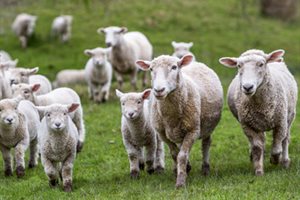Animal Disease
Monitoring animals for signs of disease, and following good farming practices are essential ways of reducing the risk and preventing the spread of disease.
 If you suspect a notifiable disease such as foot and mouth or avian influenza etc, you must report it to the Animal and Plant Health Agency (APHA).
If you suspect a notifiable disease such as foot and mouth or avian influenza etc, you must report it to the Animal and Plant Health Agency (APHA).
If in doubt you should seek veterinary advice.
Officers can provide advice and will take appropriate action to prevent the spread of disease and ensure that correct processes are followed.
Animal disease guidance and information leaflets can be found on the Welsh Government website by clicking the link below:
Guidance
Avian Influenza
Bird keepers urged to take action to protect their birds: Further increases in Highly Pathogenic Avian Influenza (HPAI) risk levels
All bird keepers are urged to remain vigilant and take action to protect their birds following a further increase in the avian influenza (‘bird flu’) risk levels in Great Britain.
- The risk level of HPAI H5 in poultry where there is suboptimal or poor biosecurity has increased to medium with low uncertainty.
- The risk level where good biosecurity is consistently applied at all times remains assessed as low with low uncertainty and the risk level in wild birds remains assessed as high.
- Practicing good biosecurity at all times protects the health and welfare of your birds and for commercial keepers will help protect your business from HPAI and other diseases.
- Further information on the evidence which supports these risk levels can be found in risk and outbreak assessments
- Find out what you can do to prevent bird flu and stop it spreading and how to spot and report it in poultry or other captive birds.
For further information on the latest situation see:
Bluetongue
Bluetongue serotype 3 (BTV-3) has been identified in three sheep that were moved to Gwynedd from the east of England. This is the first time Bluetongue-3 has been found in Wales and follows BTV-3 cases being detected in the east of England over the last month.Farmers are being urged to be vigilant for the disease and practice safe sourcing of livestock.
It is a legal requirement for suspected cases to be reported through to the Animal and Plant Health Agency on 0300 303 8268.
Bluetongue is caused by a virus that is primarily transmitted by certain species of biting midges. It affects ruminants (such as cattle, goats, sheep and deer) and camelids (such as alpacas and llamas).
Bluetongue does not affect people or food safety.
Ruminant Health & Welfare - Latest Bluetongue virus update